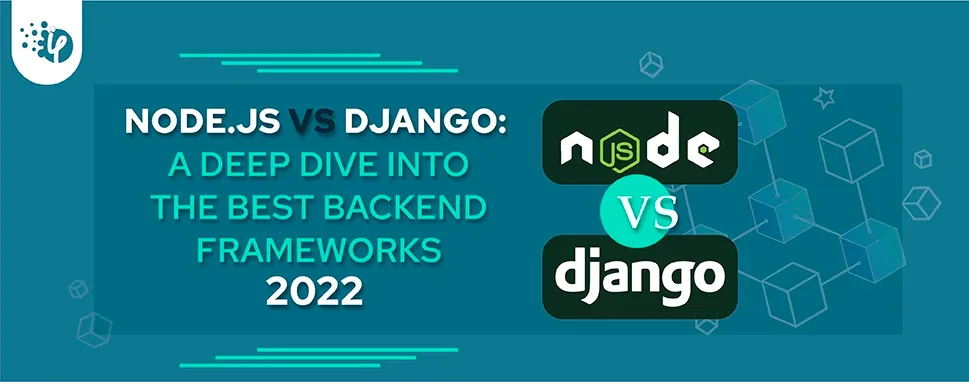Ethical Considerations for Using AI in Healthcare Software
Let’s keep it simple. In healthcare, trust, safety, and human dignity come first, no matter what solution you build. The same applies to AI. Today, it is everywhere, from clinics...
Listening is fun too.
Straighten your back and cherish with coffee - PLAY !

To attract visitors and keep them interested, websites and web apps must have an outstanding user interface and offer a smooth experience. However, they also require robust backend support to prove this. Many backend technologies are available, including Laravel, Rails, Django, and Node. Using these frameworks to build the backend boosts efficiency and ensures a consistent workflow.
The back end of any website is the part of the application that the user does not see or access. Even though it is not visible to the user, the back-end handles many of the major functions of Web applications. It typically consists of servers, databases, APIs, and other components that allow the front-end components of an application to function seamlessly.
Django and Node.js are dynamic technologies to build web apps and mobile apps with client-side frameworks.
Both Node.js and Django are open-source frameworks. Both of these have large community support that helps developers. Let us take a quick look at Node.js and Django frameworks.
Django is a well-known Python web framework employed to construct web projects quickly and deliver a highly pleasant experience. It employs the MVT model which is an abbreviation for Model-View-Template. The database is referred to as the model, the user interface is referred to as the template while the business logic is restrained in the view.
Node.js has various frameworks such as Express.js, Koa.js, and Nest.js that may be used accordingly for Node.js application development.
| Key Points | Django | Node.js |
| Release Date | 2005 | 2009 |
| Written in language | Python | JavaScript, C++, C |
| Type | Web Framework | JavaScript Environment |
| Architecture | Model-Template-View | Event-driven |
| Performance | Django has a built-in template system that supports the timely completion of a vital task, which improves speed. | Node speed is also advantageous since it benefits developers with greater implementation options. This, however, adds to the overall development time necessary to construct an application. |
| Security | Django is more secure than Node.js. It has a built-In system for security. | Node.js apps are not as secure as Django ones. It is necessary to manually install security. |
| Complexity | It is more complex than Node.js. To fix any difficulty in this situation, a developer must take a specified approach. | It is less complex than the Django Framework. and the developer can seamlessly make changes as per the requirements |
| Community | Django has small yet active community. | Node.js has a large and active development community. |
| Cost-Efficiency | Django is dynamic and faster than Node.js. And that makes it more cost-Effective. | Node.js is simple to use, but it needs more time to run, making it less cost-effective. |
| Flexibility | Django offers limited flexibility | Using npm, you may add several packages and modules to a Node.js project. |
| Stability | Applications made with Django are more stable. | Node.js applications are not that stable. |
| Learning Curve | Django has easy syntax for development which is the reason it is easy to learn. | Because of its asynchronous programming, Node.js may be difficult to understand. |
After learning the fundamentals of Django and Node.js, it is critical to understand the frameworks' flaws. Let's look at the drawbacks of Node.js and Django.
It's difficult to say whether Django or Node.js is better or which one is superior because they cannot be directly compared. There is no thumb rule to determine which of the two technologies can be used for web and mobile app development. Both technologies have good scalability and performance but, if you plan to use a relational database, many external libraries, are concerned about security, and need to build the app quickly, the Python-based framework Django is an excellent choice.
If you have a non-parallel stack, want great performance, want to structure characteristics from scratch, and need an application that does the heavy lifting of client-side processing, you can use Node.js.
The methods and tools that need to use are crucial to the success of any web app development project. Node.js and the Django web framework are both advanced technologies that would benefit your stack.
Django should be used when the user requires a smooth, contemporary web application rapidly; Node.js should be used when the development environment has to be tailored to produce a unique JavaScript-based application.
To put it simply, Django and Node.js are both equally capable, however, to decide which one to use is completely depends on the organization’s requirements and project parameters.

Let’s keep it simple. In healthcare, trust, safety, and human dignity come first, no matter what solution you build. The same applies to AI. Today, it is everywhere, from clinics...

Let's keep it real. The whole point of building autonomous Agents is to cut manual work and keep focus on business. Approvals that used to take days can happen in hours because...

Remember our last guide - Power BI forecasting? It revealed things that truly blocks accuracy, both structural and situational. Now it's time to take the next step. Knowing Power...